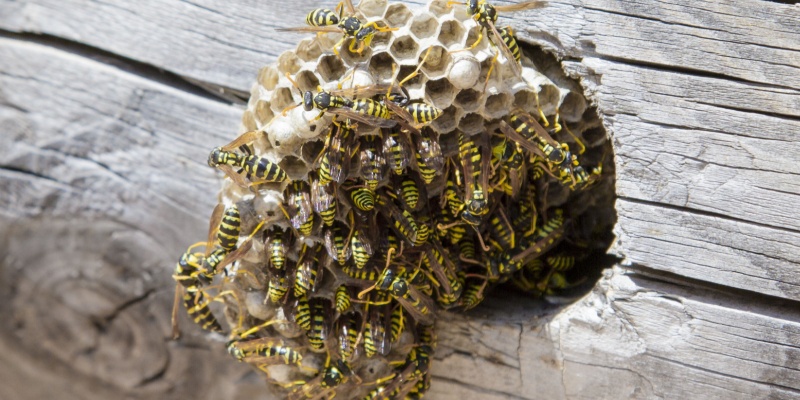Dealing with wasps on your own can be a daunting task. While it is possible to tackle a wasp problem without professional help, it requires careful planning, the right tools, and a significant amount of caution. Below, we'll explore some steps you can take to handle wasps by yourself, the risks involved, and when it's best to call in experts.
Assessing the Situation
The first step in managing a wasp problem is assessing the situation carefully. Determine the size of the wasp population and locate their nests. Wasps often build nests under roof eaves, in sheds, in garages, or buried in the ground. Identifying the nest's location and size will help you decide on the best approach and whether it’s safe to proceed on your own.
Preparing to Remove the Nest
If you decide to remove a wasp nest yourself, preparation is key:
- Timing Wasps are less active during the night. Plan to tackle the nest either early in the morning or late in the evening.
- Clothing Wear protective clothing that covers your entire body, including gloves, thick clothing, a hat, goggles, and a face mask or veil.
- Equipment Have the right tools on hand. This includes wasp spray that can be applied from a distance, bags for safely disposing of the nest, and a plan for quick retreat if the wasps become aggressive.
Using the Right Method
- Sprays Insecticidal sprays specifically designed for wasps can be effective. These allow you to stand a safe distance away while targeting the nest, reducing the risk of stings. Spray directly at the nest entrance, ideally when the wasps are inside. This method is generally effective for aerial nests.
- Traps Wasp traps can be useful for managing wasp populations without directly attacking the nest. They work by attracting wasps into a container from which they cannot escape. Traps are best used as a supplementary measure to reduce the number of foraging wasps or when the nest location is unknown.
- Natural Alternatives If you prefer to avoid chemicals, there are natural remedies like peppermint oil, which some claim repels wasps. However, these methods are generally less effective than insecticides and may not be suitable for large infestations or when immediate results are needed.
Risks of DIY Wasp Removal
While removing wasps by yourself can save money, it also comes with significant risks:
- Stings Wasps can become very aggressive if they feel their nest is threatened. Multiple stings can occur, which can be particularly dangerous for allergic individuals.
- Ineffective Removal There’s a chance that DIY methods may not completely remove the wasp problem, leading to a resurgence.
When to Call Professionals
It’s advisable to contact professional pest control services in the following scenarios:
- Large or Inaccessible Nests If the nest is large or in a location that is difficult to reach safely, professional removal is the safest option.
- Allergies If anyone in your household is allergic to wasp stings, do not risk DIY removal. Professional pest control can handle the situation with appropriate safety measures.
- Persistent Problems If wasps continue to be a problem despite your efforts, professionals can offer more permanent solutions.
While you can attempt to manage a wasp problem on your own, assessing the risk and being prepared are essential. For large or complex issues, or if safety cannot be guaranteed, hiring professional pest control services is a wise decision. Remember, the safety of you and your family should always come first in these situations.

